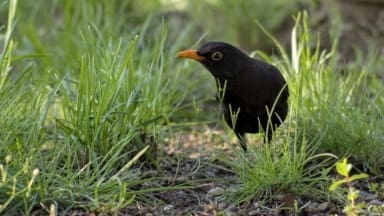
To understand why the songbird is facing decline, the public is being asked to contribute to a survey by the British Trust for Ornithology (BTO). The Blackbirds in Gardens project aims to understand how Blackbirds use gardens, and the potential effects of the Usutu virus on their population in the UK.
First detected in London in 2020, the Usutu virus is proving to be potentially fatal to blackbirds. A mosquito-borne virus, Usutu was first identified in South Africa and has spread across mainland Europe and now south-east England. Spread by bird-biting mosquitoes which rarely bite humans, the risk to humans is low. When it does occur, human infection is often asymptomatic, and there have been no human cases of Usutu detected in the UK to date. Although the risk to humans from the virus is low, this is the first time in modern history that a mosquito-borne viral zoonosis (a disease which can be transmitted from animals to humans) has emerged in the UK.
According to the BTO, blackbird numbers in London fell 50% in 2020 compared with 2019. Numbers recovered somewhat, but are still about 32% lower now than in 2019. Overall, their numbers have decreased by 18% across the UK since the 1970s due to multiple factors including, climate change and habitat loss.
By means of the survey, researchers are keen to see if anything similar is happening in other large cities across the UK, and how this compares to smaller urban and rural areas. The survey runs from May to October during 2024 and 2025.
This BTO survey is part of a wider partnership project, being run in conjunction with the Animal and Plant Health Agency (APHA), the Zoological Society of London (ZSL) and the UK Health Security Agency (UKHSA). The project, Vector-Borne RADAR, is funded by UK Research and Innovation and Defra to understand the emergence and transmission of mosquito-borne viruses of wild birds in the UK, which are expected to increase as a result of climate change.
For further information and to take part in the survey, we refer you to the BTO BlackBirds in Gardens Project. If a sick or dead blackbird is found (or other dead garden wildlife), you are advised to report it to the Garden Wildlife Health website.

